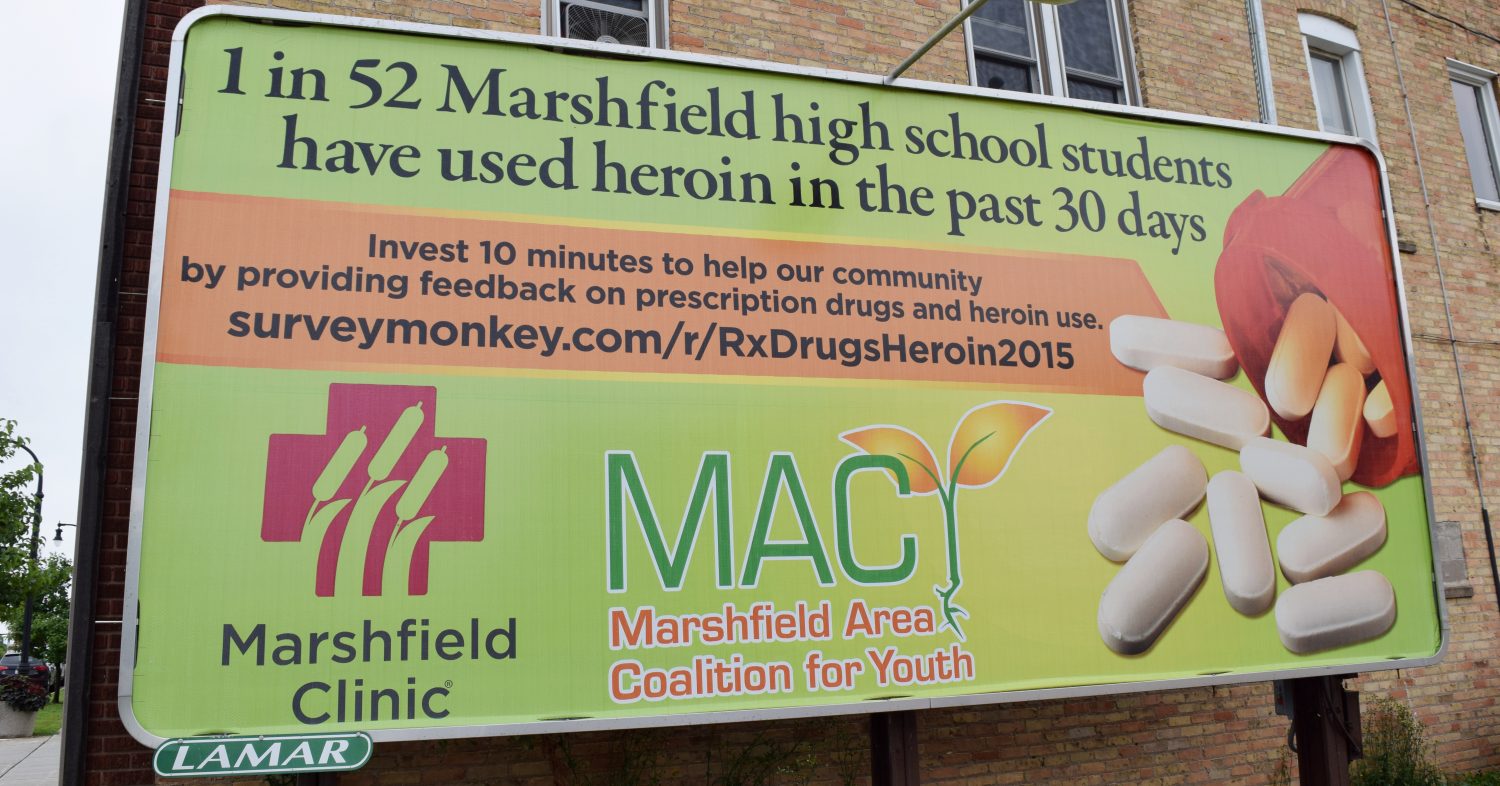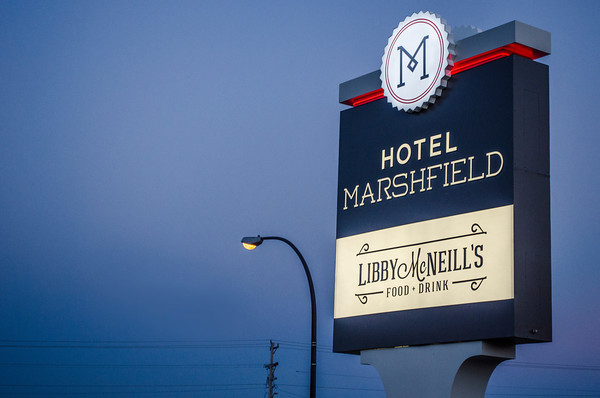MACY, city take steps in the fight against heroin

By Adam Hocking
Editor
MARSHFIELD — Heroin is casting an increasingly dark shadow over the city of Marshfield, and in response Marshfield Area Coalition for Youth (MACY) and the city government are working together to do something about it.
MACY is a coalition of community members and organizations that is coordinated and staffed by the Marshfield Clinic Center for Community Outreach. The organization conducts an annual Youth Risk Behavior Survey, which polls local students in eighth, 10th, and 12th grade on several topics, including drug use.
According to MACY, in January 2015 567 high school students from both Marshfield High School and Columbus took the survey, and some alarming data was uncovered. Survey results showed that nearly 6 percent of students surveyed took prescription drugs not prescribed to them, and nearly 9 percent of those students saw no risk associated with doing so. In addition, 2.6 percent of students reported trying heroin one time or more in their lives, and 1.9 percent reported using heroin in the past 30 days.
Since 2010 the Marshfield Police Department has seized nearly 350 grams of heroin, which is more than half the amount seized by 14 other law enforcement agencies comprising the Central Wisconsin Drug Task Force. That information comes from a MACY report citing the Marshfield Police Department as its source.
The availability of prescription opioids is also an issue as those drugs often go hand in hand with the use of heroin and may be a gateway to heroin use.
According to the National Institute on Drug Abuse, “Prescription opioid pain medications such as OxyContin and Vicodin can have effects similar to heroin when taken in doses or in ways other than prescribed, and they are currently among the most commonly abused drugs in the United States. Research now suggests that abuse of these drugs may open the door to heroin abuse.”
“Some narcotics are basically the synthetic form of heroin, and because right now heroin tends to be cheaper, that if you can’t get your pills you would turn to heroin,” said Danielle Luther, who is a manager for substance abuse prevention at the Marshfield Clinic Center for Community Outreach.
Since 2006 Marshfield police have received a street value in excess of $717 million worth of prescription drugs that qualify as controlled substances through a prescription drug take-back program. Through this program residents can return their unused medicine so that it is not abused.
The plan of attack
In response to heroin’s prevalence in the Marshfield community, MACY formed a Heroin Ad Hoc Committee in 2013. The committee was charged with looking at local trends of drug abuse and identifying strategies that would cut the overall demand for opioid drugs in the community.
MACY’s first step has been to implement a public awareness campaign, part of which is already underway and is being funded by the city’s $25,000 contribution. The Marshfield Common Council unanimously approved that allocation at a June 23 meeting.
The beginning phase of the campaign was to measure the community’s perception of drug use and abuse through an online survey. Luther said the survey was a way to gauge what people know about prescription drug and heroin abuse and how they would like to hear more about it. The survey received 434 responses.
Moving forward in their public awareness campaign, MACY will use the data gathered from the survey to inform its future strategies and decisions. Outlined in MACY’s campaign are initiatives to work with local media and to create marketing materials — brochures, flyers, or yards signs for example — to build awareness of the issue and promote public education.
MACY will also have an official kickoff to their campaign by hosting a booth at the Central Wisconsin State Fair in Marshfield. From September 2015-April 2016, MACY intends to distribute at least 5,000 “public awareness campaign materials.” In April of 2016, MACY will publish the results of their efforts.
Luther said the survey may be administered again at the same time next year and that the campaign does not have funding for more than a year, so MACY will likely ask the city for further funding.
“We know that in prevention it takes multiple years, multiple strategies in order to make change,” Luther said.
MACY had originally asked the city for a commitment of $250,000 over five years. City Administrator Steve Barg said he anticipates MACY coming back to the city for more funds on a yearly basis and that the city decided to start at a $25,000 one-time contribution in part due to budget constraints and in part to get a better feel for MACY’s plan and the productivity of that plan before committing more money to the project.
“We can certainly look at more funding in 2016 and beyond,” Barg said. He added that common council members in general have been supportive of the project, but they also want to see how effective the public awareness campaign is. Showing results could be difficult as the campaign is just getting underway while budget planning begins in the fall.
Luther said that public awareness is an important starting point for the success of a campaign.
“People say that in prevention, first people need to recognize the problem, and it builds community readiness to make change,” Luther said. “It’s creating that community dialogue.”
When asked what the end game of the overall campaign is, Luther said, “Ultimately, if no one ever died that would be the best thing but then also to get our youth not to start.”
To learn more or get involved with this campaign, contact Danielle Luther at the Marshfield Clinic Center for Community Outreach at [email protected] or call 715-221-8413. To stay updated with Marshfield Area Coalition for Youth activities, visit their Facebook page by searching “Marshfield Area Coalition for Youth – MACY.”
Leave a reply
You must be logged in to post a comment.






